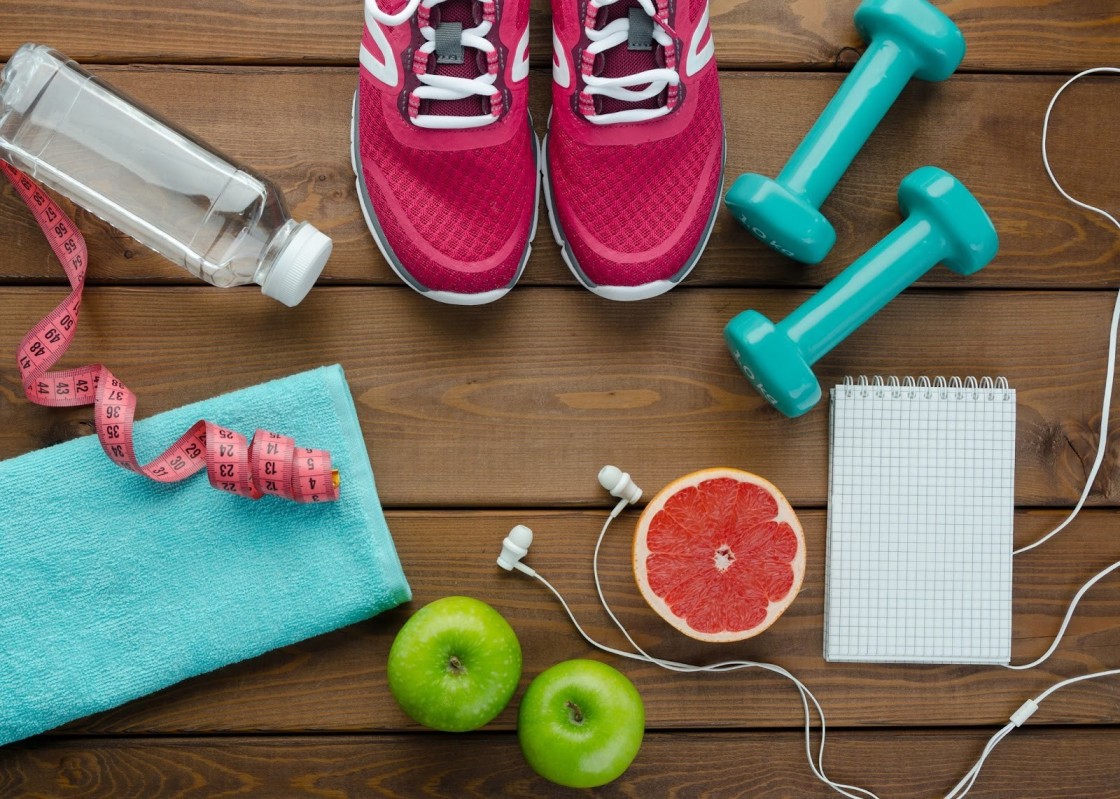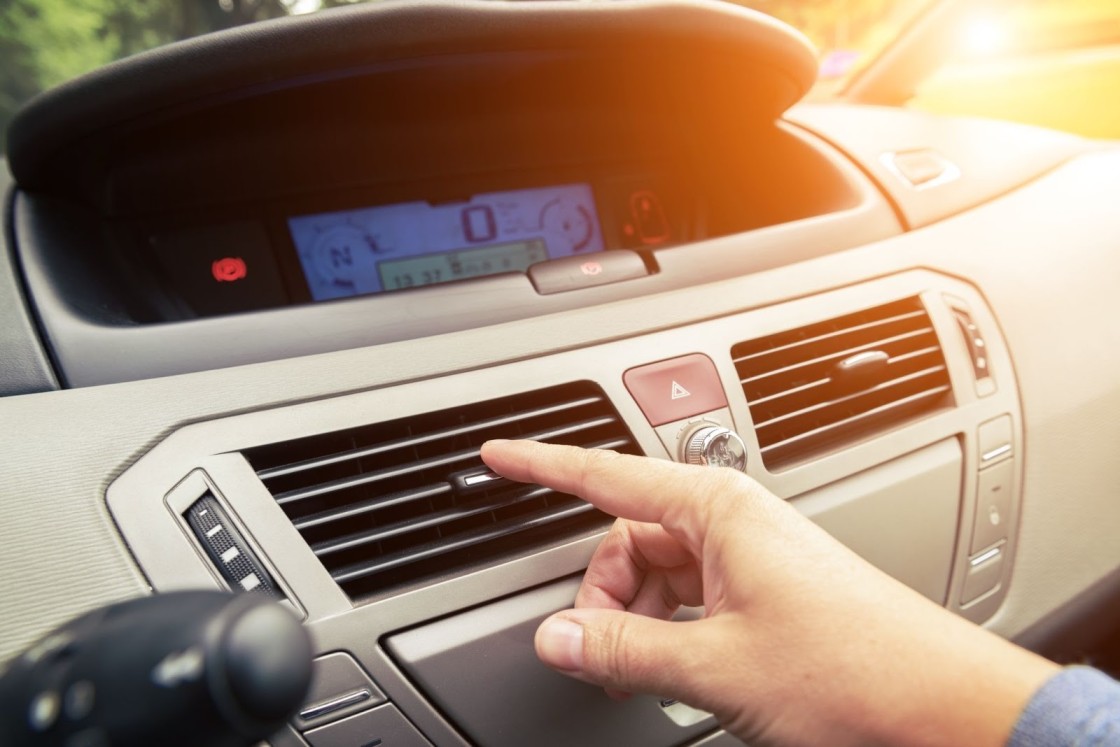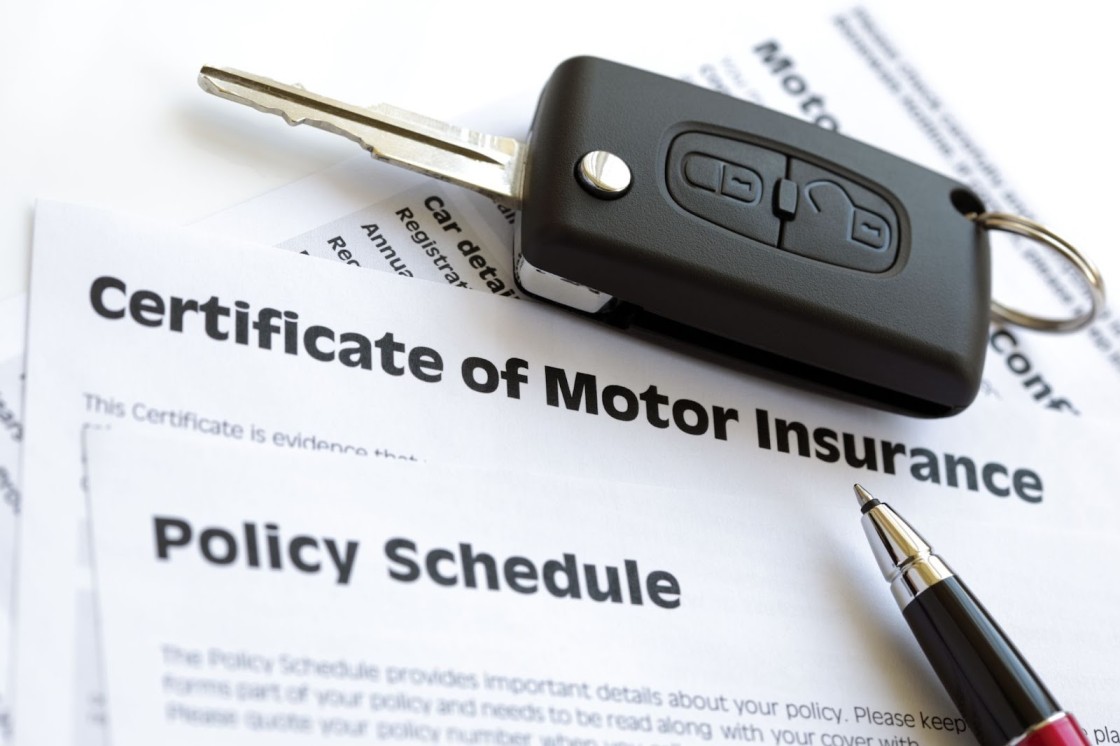General Insurance Blogs, Articles & Updates by - Magma Insurance
Have us call you
- RENEW YOUR POLICY
- BUY NEW POLICY

Are you health and budget conscious? Here is how you can eat organic on a tight budget
On a limited budget, going organic and all-natural sounds unusual. Still, the truth is that eating organic is not only better for you, but it is also better for the environment. Let us know, how. Organic food is chemical-free, 100% natural and full of health. In addition, it is environment friendly as natural fertilizers like cow dung or manure and kitchen wastes are used for farming instead of pesticides.
Organic foods are popular among health-conscious consumers, although they might be more expensive than other foods farmed conventionally. Harvesting and managing organic crops is time-consuming for the farmers, thus making them more costly for the consumers. So how can you manage your health and budget wisely? It is certainly conceivable, even though it appears to be impossible. Here are a few ways to manage eating organic foods while on a budget.
1. Shop at budget-friendly stores: The first approach to save money on organic is to shop at the correct place. Stop by the local market on a weekday to see how cheaper local food may be than imported stuff. Deals are constantly available for you to take advantage of.
When you buy organic food at a farmers' market, you may expect fresh and less expensive organic produce than you would find in a supermarket. In this way, you even contribute to promoting the sincere efforts of the local farmers, and you assure maximum profit to the farmers by buying directly from them.
2. Cultivate your garden: You will save some money on vegetables if you grow your own organic produce. You don't even need to have a large garden to grow organic vegetables. You may grow your favourite vegetables in pots, which occupy very little space. Even better, you may choose a raised bed, which is ideal for packing many vegetables into a bit of space.
3. Purchase produce that is in season: Buying produce, even organic stuff, is usually less expensive when it is in season. This is owing to plentiful supply and the fact that it has not been shipped halfway around the world. Seasonal organic vegetables have the advantage of being less expensive, fresh, and more nutritious. If you're not sure when your favourite organic food is in season, check out one of the many seasonal produce guides available online.
4. Consider organic frozen food: Fresh vegetables are always healthier than frozen ones, regardless of the conditions. That isn't always the case, though, as frozen fruits and vegetables are just as healthy and nutritious as their fresh counterparts. Frozen food is collected and frozen at the peak of its season, ensuring that it preserves its nutritional content. On the other hand, fresh veggies lose some nutrients over time when they travel longer distances to retailers. Therefore, consider buying frozen organic food next time you are shopping.
5. Purchase in large quantities: Buying in bulk saves money because most things are less expensive than a single package. However, buying in bulk, even if you don't need it, will result in waste. It exacerbates the problem by removing money from your pockets you can spend on the food you genuinely require.
We hope you no longer have to compromise over the quality of your food simply because your budget is getting in the way of it. If healthy practices are managed efficiently, they can be pocket-friendly, focusing on sustainability and a nourished lifestyle. Healthy practices even include investing in health insurance. When buying health insurance, do not necessarily go by the conventional method; instead, you can buy ONLINE HEALTH INSURANCE conveniently from your smartphone or desktop.
Click HERE to explore our online health insurance services.
Disclaimer: The information provided above is for illustrative purposes only. To get more details, please refer to policy wordings and prospectus before purchasing a policy.

Family on the road trip? What to know before you go
Road trips are the best part of any vacation, and if it is with family, then nothing can be perfect than this. Family road trips can turn into a great time for everyone by strengthening the bond among the members.
A road trip can either feel like an exhausting chore with endless hours of constant irritation or a fun-filled adventure with memories that will last a lifetime. It depends entirely on planning a trip and what engaging elements you try to include during your journey.
Are you in a dilemma about how your family trip turns out to be? Then, before you hit the road, be sure to read our recommendations to prepare for a family road trip. These tips will help keep the children happy, parents sane, grandparents comfortable, and make your trip a memorable one.
1. Make frequent halts: Go on the internet to look for exciting places you can stop by on your way to keep everyone engaged. Even stopping at a regular park or a garden space allows everyone to stretch their bodies and get to enjoy themselves. You can also carry a Frisbee to play as these small fun activities keep the excitement intact for the long drive. Driving can be exhausting, so taking breaks helps the driver to de-stress and helps to regain concentration. Refreshment stops are a must. You can discover varieties of food and great highway-side restaurants if you decide to have a meal on the road.
2. Plan your route: Nowadays, most cars come equipped with GPS. Still, you should plan a route suitable for you before leaving. Check if the weather conditions, in any way, would affect your course. It is difficult and dangerous to drive on certain roads in monsoon season, especially the landslide-prone mountain areas. So, try to avoid them as some have traffic congestion while others may be blocked. Keep a physical paper map to navigate through the journey. It comes in handy when you lose a network connection. Plus, it will be a great real-life geography lesson for your kids while travelling.
3. Food and Entertainment: We can quickly be bored on a long trip. And we tend to eat whenever we are bored. So, pack healthy goodies like sandwiches, protein bars, and fruits. Avoid carrying and consuming eatables that can make a person with motion sickness feel nauseous. Instead of sitting in your car and uncomfortably having your meal, you can also plan a picnic at a rest stop or try new hotels and dhabas on your way. Another solution for boredom is to have some good entertainment. Enjoy some good music, make a playlist with songs that everyone likes. Audiobooks are a great way to listen and learn something new.
4. Get comfortable, but safety first: Carry a couple of comforters, blankets, and pillows to ensure a refreshing nap. A neck pillow can be a favourite item for long drives. Along with comfort, ensuring safety is also essential. Make sure to buckle your kids safely in a car seat or a booster seat. Also, have an emergency first-aid kit ready with you. Check your car's tires, oil changing status, wirings, and level of fuel. Carelessness on the roads is something that you cannot afford to do, especially with your family and kids.
What do you think about going on long road trips with your family? With Covid restrictions easing out, you can now plan a long road trip soon to make some priceless memories with your family. Before you leave, double-check your driver's license and other essential papers like PUC and motor insurance. As ONLINE MOTOR INSURANCE is available, you don't need a hard copy of the documents; a soft copy will be enough. Nonetheless, have a fun drive, and enjoy a vacation with family!
Click HERE to know more about online motor insurance for your car.
Disclaimer: The information provided above is for illustrative purposes only. To get more details, please refer to policy wordings and prospectus before purchasing a policy.

Tips to maintain your energy levels during quarantine
Your lifestyle choices often determine whether you will lead a healthy life or not. The food you eat and the physical activity you do is directly correlated to your overall health. If you are physically active and keep a check on what you eat, then there is a good probability of you being healthy even in later stages of life. A sedentary lifestyle only increases the risk of chronic diseases.
The rise of COVID-19 infection has forced everyone to stay indoors. It was assumed that doing any physical activity won’t be possible anymore. Yet, the fitness geeks have found ways to work out when quarantining from home as well, leading the path for others to follow.
While quarantining from home, these fitness enthusiasts are following the below tips to maintain a healthy lifestyle and keeping themselves physically and mentally active:
● Exercise and eat well –
Regular exercising helps in remaining physically healthy, improves mental health and reduces anxiety levels. Initially, you might feel rusty, but exercising regularly will boost your energy levels. You can dance, do yoga, or just play with your children to lift your spirits. Staying at home can make you eat unhealthy and fatty foods, which can decrease energy levels. Avoid sugary and salty foods to stay energetic throughout the day. Stay hydrated, drink a lot of fluids, and at least 8-10 glasses of water a day. Consume foods that provide protein, carbohydrates, and fiber, such as green vegetables, fruits, red meat, etc.
● Have an appropriate sleep pattern –
It is important to reduce anxiety to have better sleep. Try to go to bed at night and get up in the morning at the same time daily, irrespective of the quality of sleep. Avoid eating late, or consume alcohol or caffeine at night. The restorative rapid eye movement (REM) time reduction makes you feel rested even being awake. The sleep quality might get impacted with the use of phone, laptop, or TV before sleeping. Try things that keep you calm, such as reading, walking, etc., before going to bed, to reduce anxiety and improve sleep quality.
● Have a routine –
Without a set schedule, one might feel tired and unenthusiastic. It’s important to have time for meals, sleep, work, and relax. Prioritizing such things will help in keeping anxiety in check. Take breaks at regular intervals to stay energized in case of working from home. Ensure there is time off from work, so you can get some me-time as well.
● Think positive –
Having a compassionate mindset helps in conserving energy. Practicing this kind of thinking is known as ‘kind attention’. Be empathetic towards your colleagues or family members, and understand the challenges they are facing while working from home. Supporting your spouse in daily chores will reduce their workload and strengthen your bond. This kind of positive attitude will keep your spirits high, and increase your focus and energy levels.
● Stand up while working –
Whenever possible, take a break from work to stand up to reduce your sedentary time. With the availability of ergonomic furniture, use a standing desk such as a high table or stack a pile of books, or other materials to work while standing. While standing, indulge yourself in reading, and playing board games and puzzles, to refresh your mind.
COVID-19 has made it difficult for people to have a positive outlook while being stuck at home. But with a healthy lifestyle of exercising at home, eating homemade food, and bonding with family can help to survive in these tough times. As nutrition is vital for physical, mental, and social well-being; so is health insurance for the health and security of your loved ones. Always have Health Insurance for you and your family members, so you aren’t worried about money while providing them with the best healthcare.

Four Steps towards a Healthier Lifestyle
Over the past year, the importance of living a healthy lifestyle free of diseases and morbidities has become exigent. People have begun to understand that healthy practices improve longevity and help tackle threatening diseases more effectively. Let’s take a look at four different steps you can take towards a healthy lifestyle for yourself and your family:
1. A Healthy Diet –
The first and perhaps the most important step towards a healthier lifestyle is to improve your diet. When our diet is significantly centered around junk and processed food, the intake of unhealthy fats and excess carbohydrates increases, leading to heart problems and problems such as high blood pressure and obesity. A well-balanced diet that includes appropriate proportions of proteins, fats, carbohydrates, vitamins, minerals, and fiber can significantly reduce these risks. Include vegetables and fruits in your diets as often as possible, ideally every day, alongside pulses and grains. Even with these ingredients, you can have delicious meals all three times of the day that are also healthy for your body. Indian cuisine contains mainly these ingredients and offers immense variety as you go from the north to the south, alongside great nutritional value.
2. Exercise –
If you exercise about an hour every day, the impact of physical activity on your body will be visible and evident in about six to eight weeks. Exercise does more than just keep you in shape. It stimulates your body and, if you are involved in a vocation that requires sitting all day, then it provides the essential elements of physical work. Exercise also reinvigorates the flow of blood in your body and keeps the heart healthy by improving circulation. This improved circulation further helps reduce the risk of heart diseases. Regular exercise is also known to lower blood pressure as well as triglyceride levels. If you do not wish to exercise, simply taking a brisk walk every day can also help you maintain a healthy body weight and reduce body fat. It also strengthens your bones and improves blood circulation throughout the body.
3. Get Apt Sleep –
Sleep doesn’t just provide rest but also helps your body recover from a hard day’s work by repairing your muscle fibers. If you exercise regularly, the exercise results will be much more evident if you get an appropriate amount of sleep during the day. Sleeping for about eight hours a day also reduces the chance of depression and several other problems associated with mental health. It boosts your immune system and improves your cognitive abilities through better memory assimilation and retention.
4. Find Solace –
Along with physical health, mental health is something that cannot be neglected. One way to ensure a sound state of mind before starting your day, carve out 10 minutes and sit for meditation; check-in with yourself. Many yoga asanas provide similar benefits as meditation. If you find it difficult to meditate, you can always find solace in prayer. These practices help put your mind at ease. When you start your day with a calm, well-rested mind, it ensures a good day not only for yourself but also for those around you. And no doubt, being in a sound state of mind certainly has a positive impact on your physical health as well.
Adopting these steps can help you on your journey to living a healthy lifestyle and improve the quality of your life significantly. One practical way to tackle any unforeseen health issues is to buy Health Insurance Online . Insurance acts as an essential safety net to ensure that you don’t have to bear a large financial burden in an unexpected disease.

Fuel economy tips for summer
India has some of the harshest summers for any country in the world. Temperatures can routinely touch 50°C in several parts of the country, and the need for air conditioning or any form of cooling is fairly consistent throughout the year. But humans aren’t the only ones who suffer in these harsh summers. If you drive a car, the summers can be hard on your car as well. Driving in the summers often means having to turn the air conditioning (AC) on full blast for long periods, which can bring down your fuel economy considerably. Here, we cover some tips that will help you manage your fuel economy even in the summers.
Slow Down:
Regardless of the season, but especially in the summer, with the AC on, it is much better to drive within a certain range of speeds for optimized fuel economy. In general, the bracket between 40 km/h and 80 km/h will serve you best, irrespective of whether you’re driving in the city or on the highway. With fuel costs soaring by the day and the traffic on Indian roads only getting worse, it is wise to save fuel costs by driving at slower speeds. This also allows you to use the AC for longer durations.
Use the AC Intermittently:
The crippling summer of India often makes you want to use the AC for long periods without a break. However, the AC of your car is not as well equipped at handling long usage hours as your average domestic or industrial AC. Using the car AC for long periods can increase the load on the system and decrease its cooling efficacy. This can lead to damage in the long term and increases the chances for repair in the middle of the season. Hence, it is important to use your AC only intermittently, even on long trips. Make sure to turn it off when your car has cooled down sufficiently and turn it back up only when you feel the need for it again. Also, make sure that your AC is covered for damage when you buy your Car Insurance Online.
Turn Down the AC:
Apart from using it continuously, the summers are also when you are most likely to use the AC at its maximum capacity. There is hardly a standard flow rate at which your vehicle will blow air towards you, and hence the performance of different ACs at full blow will generally be different. Similarly, the performance of ACs will differ according to the age of the vehicles. The higher the level at which you operate your AC, the lower your mileage is likely to be. As enticing as it might be to get the most out of your AC in the summer, it is much more prudent with respect to mileage to slow down the AC.
Don’t Idle:
Depending on the model of the car you drive, it might be possible to leave the AC on while the engine is off. Even if your car has this feature, make sure to not idle your engine just so that you can leave your AC on. Idling the engine can reduce your mileage by several percentage points and generally wastes a huge amount of fuel. Instead of idling, if you get to your destination early, simply get out of the car and start walking to your destination. Similarly, if you are at a long signal, switch off your engine to save fuel and don’t worry about losing an extra few seconds of cool air.
Indian summers are perhaps when the greatest amount of fuel is lost due to the above factors. Following best practices associated with fuel mileage can help you save fuel and generally ensure a long life for your car. To add an extra layer of security, make sure that you buy car insurance online so you won’t need to pay out of your pocket if a summer breakdown occurs.

Have a beautiful smile with five tips for healthy teeth
Oral health is not only important to keep cavity and gum disease at bay, but it also plays an important role in keeping you fit. With the mouth being the entrance to what you eat and drink, there is a strong correlation between your oral hygiene and overall health. Gum issues and tooth decay can cause pain, tooth loss, and reduced appetite and might affect your self-confidence if not treated on time. This can further lead to undernourishment and speech issues, causing strain on your personal and professional life.
It’s never too late to start taking care of your teeth. Below are 5 tips you should regularly follow to keep your teeth healthy:
● Avoid sugary food and drinks –
Do you find your teeth unclear and uneven? This could be due to dental plaque on the surface of your teeth. Plaque is caused by the sugary substances we eat, producing cavity-causing acid. So, whenever you eat sugary foods, a layer of plaque might get coated on the teeth. To reduce the occurrence of plaque, limit your consumption of sugary foods and drinks. Additionally, always check the labels and ingredients of packaged foods for sugar content before buying. For e.g., many yogurt flavors and sports drinks contain a high quantity of sugar, which might affect oral health.
● Brush your teeth twice daily –
Brushing your teeth two times a day helps in removing plaque and germs. This becomes more effective if done with the appropriate technique. Always brush the front, back, and top properly in small round movements. This process would take around 2-3 minutes; avoid moving the brush backward and forward. Hard brushing can cause damage to tooth enamel and gums that affect tooth sensitivity. If you see blood in your gums while brushing, then try gentler movements. It has been recommended by dentists to use a soft-bristle brush and change it every 3 months.
● Floss your teeth once a day –
Flossing helps to get rid of plaque and food stuck in the teeth, which cannot be removed while brushing. These stuck food particles, if not removed, get disintegrated by bacteria, leading to bad breath. The stuck debris can also affect your teeth, which might require treatment, such as a root canal to be fixed. Push the floss into the gum line before embracing the side tooth. There would be no pain while moving it up and down and removing the plaque effectively.
● Use mouthwash –
Always use mouthwashes recommended by dentists for good oral health. Mouthwash containing chlorhexidine, which is an antibacterial ingredient, helps in preventing plaque and gingivitis. It also contains essential oils that aid in oral health. Mouthwash cannot be a replacement for brush and floss but can enhance your teeth-cleaning practice.
● Visit the dentist regularly –
You should go to see the dentist for a regular check-up once in 6 months. They will examine your teeth to remove plaque, germs, and hardened tartar. The dentist will do a visual check for oral health problems, cavities, disease in gums, and mouth cancer. Cavities can be checked through dental x-rays. If adults take care of dental hygiene daily, then the frequency of visiting the dentist for oral health problems could be lesser.
Dental treatments are often not covered by your Health Insurance. Thus, various medical procedures performed by a dentist can be an expensive affair. Hence, it’s recommended to follow good oral habits for a healthy body and less medical expenditure.
Following good dental care from childhood helps keep the mouth healthy, even till later stages of life. Healthy oral habits protect you from various diseases and keep you fit throughout life. Follow the steps mentioned above as part of your routine to improve your smile and oral health.
If any pain or discomfort presents and persists, always consult with your dentist.

All you need to check before buying a new car
So you are just a few steps away from owning your dream car. But have you thought of the insurance process yet? Insurance is something that must be planned in advance as it cannot be purchased in a rush. One must research thoroughly before buying any car, whether it is a new one or an old one. This article will take you through everything you need to consider before purchasing a new car.
Insurance Types
Before purchasing a private car insurance, you need to be aware of all the available policies and what cover they offer. Car insurance policies vary between private and commercial vehicles, so you will need to buy insurance that suits your vehicle usage.
There are two basic types of insurance policies. They are:
1. Third-party Insurance –
Third-party insurance is compulsory for all vehicles on the road. In case of an accident, it covers any damage to the third party. But it doesn’t cover any damage that occurred to your car. To cover damage to your car, you will need to buy comprehensive insurance (explained below). The third-party policy is a relatively more affordable kind of insurance.
2. Comprehensive Insurance –
In case of an accident, a comprehensive insurance policy covers the damage to your car as well as to a third-party car. It can also cover any accidental damage or theft of the car. This policy also covers damage caused by natural disasters. This is the highest form of insurance policy you can get for your car.
Buy Add-ons based on your risk profile
Based on your risk profile, you can opt for some add-ons like roadside assistance, engine replacement, etc. For example, if you enjoy riding at odd hours or for long distances, then opting for roadside assistance as an add-on can be useful. In case of a vehicle breakdown, you will get assistance, and the vehicle will be moved to the service center.
Compare the dealers
Most car dealers offer insurance policies at the time of buying the car. But those policies may not meet your requirements. Make sure to compare the policy prices among different dealers and then make an informed decision. It is tempting to buy the cheapest policy, but choosing a suitable policy after thorough research of the dealers will help you in the long run.
Don’t neglect the policy terms
Most car owners read only what is included in the insurance policy and ignore the part that talks about what is not included. This is a very common mistake among most insurance buyers. Ensure that you go through the policy carefully and understand both inclusions and exclusions in your policy before finalizing.
Know about the claim procedure
Inquire about the claims procedure before purchasing a motor insurance policy. The process should be simple and reliable. Test the insurer's claim payment percentage as well. The claim payout ratio of a corporation indicates how many policies are settled per year by settling back claimants. You can use the claim payout ratio to gauge the reliability of the insurer.
Understand Insured Declared Value (IDV)
The Insured Declared Value or IDV, vehicle size and other variables are used to determine the premium of a private Car Insurance . As a result, knowing a car's IDV is important. In case of complete loss or burglary, the IDV is the highest amount you can collect on insurance. The IDV of a vehicle decreases as it gets older because a relatively new car has a higher IDV than a car of the same type that is a year older. In easy terms, we can say IDV is the current market value of your car.

8 key benefits of car insurance renewal
In India, cars are among the most purchased and valued commodities. With an increased number of vehicles plying on Indian roads, there has been a notable rise in car accidents. To ensure the safety of drivers and others, the Motor Vehicle Act, 1988 has made it mandatory that all vehicles must have a valid insurance policy before plying on public roads.
There is one more reason why you should have car insurance coverage. Not having insurance leaves you vulnerable to financial damages during unfortunate accidents. No matter how good a driver you are, you must possess a valid car insurance policy and renew it annually. We share the 8 benefits that your Car Insurance Renewal can provide you!
1. Third-Party Coverage:
If the unfortunate accident involves other individuals or their properties, your insurance renewal comes to your rescue. It protects against any loss or damage caused to the third party by your vehicle during an accident.
2. Comprehensive Coverage:
The comprehensive coverage provides a shield against the own vehicle damage and the third party coverage. It also protects your vehicle against natural calamities such as cyclones, earthquakes, landslides, floods, etc. At the same time, you also get coverage against man-made tragedies like theft, burglary, riots, etc.
3. No Claim Bonus (NCB):
Your car insurance renewal offers you a reward for safe driving in the form of a no-claim bonus. When you renew your car insurance online without any claim during the policy period, you will be eligible for NCB benefit. It is a discount on insurance policy premium, which you can avail during policy renewal. The NCB value can go up from a minimum of 20% for the first year to 50% for the fifth consecutive no-claim year of the policy.
4. Large network of garages:
Almost every good car insurance maintains an extensive network of garages across the country. It means that you receive cashless services in all these locations and networks of garages. This feature makes it convenient to claim a repair service if any damage happens to your vehicle.
5. Add-Ons:
Depending on the insurer you choose while opting for insurance, you get access to add-ons such as zero depreciation cover, engine cover and cover for accessories, etc. During your policy renewal, you can opt for riders to enhance your policy coverage with mentioned benefits.
6. Transparent Process:
Transparency is another significant factor that a policyholder gets while renewing car insurance. All your policy information is accessible to you at your fingertips. This ensures that there is no ambiguity regarding the process and the policy features.
7. Flexibility to switch insurer and cover:
During the online insurance renewal, you can compare the premium of various insurers. When you took insurance for the first time, you might not have thought of an insurer or coverage. However, car insurance renewal brings you the opportunity to select the best insurance company for your vehicle.
8. Security:
And most importantly, when you renew your policy, you get a sense of security and a shield of protection. Not just for yourself but for your vehicle too. It allows you to drive around with confidence and peace of mind.
You can opt for car insurance renewal online that is much quicker and affordable. You can simply visit an insurer's website and get an estimate by entering some essential details they ask for and renew your car policy online.

